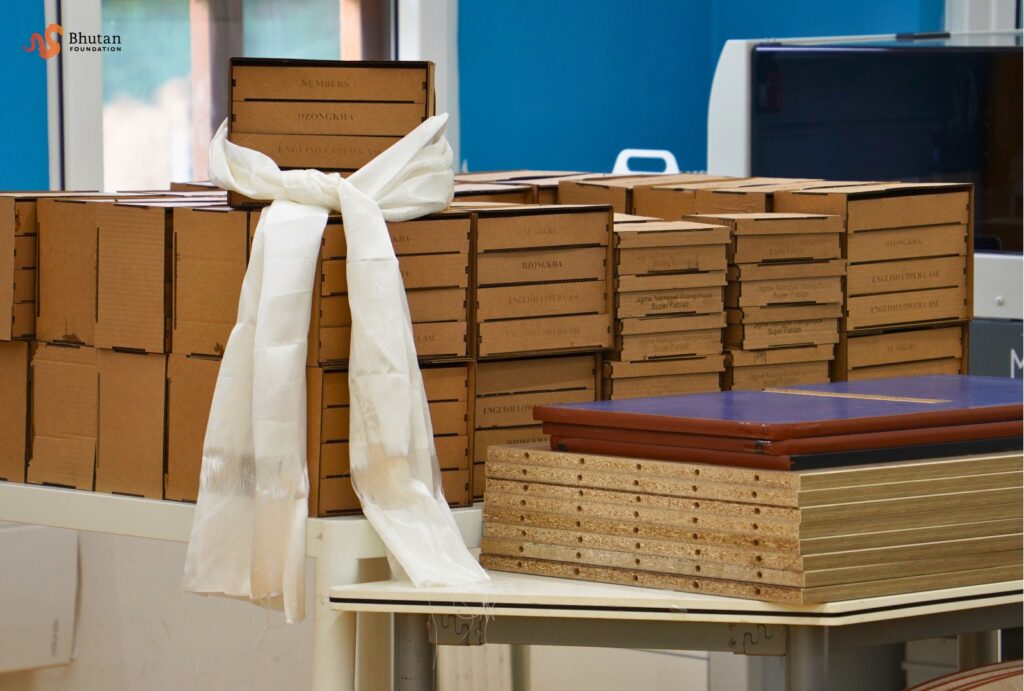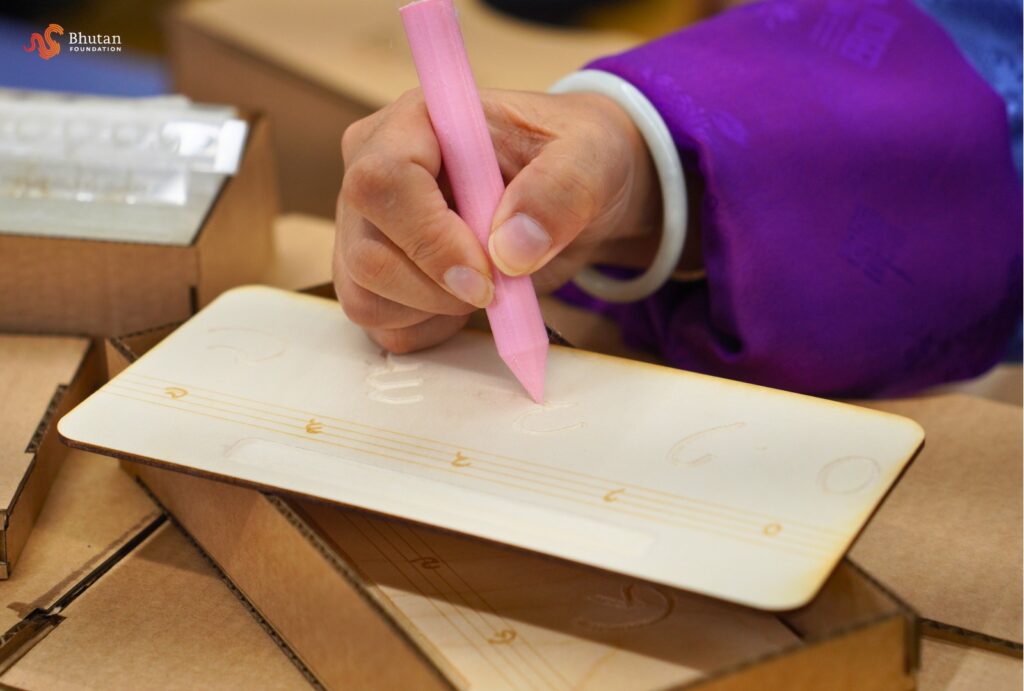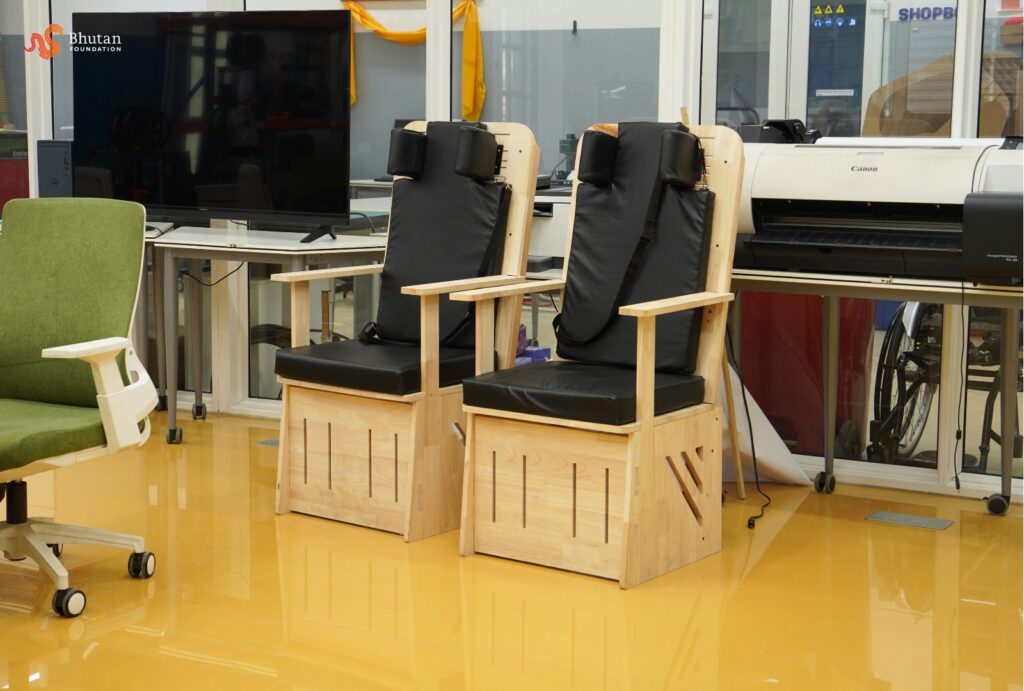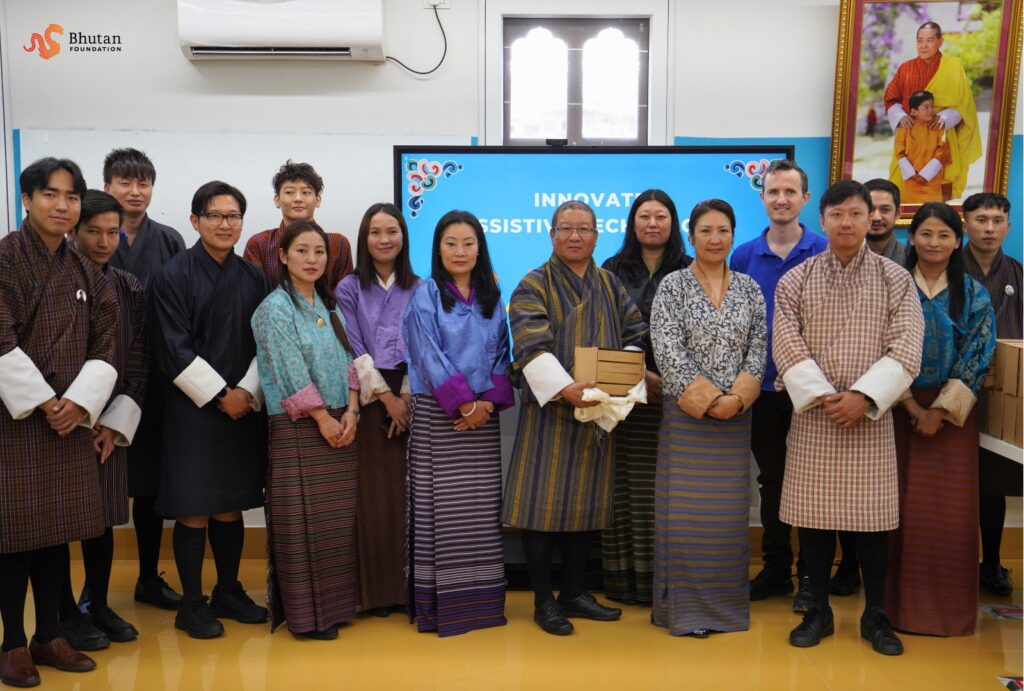September 5, 2025
Locally Designed Assistive Devices Handed Over to Schools to Support Inclusive Learning
Assistive Technology (AT) is transforming how children with diverse abilities learn, interact, and thrive. Often misunderstood as high-tech equipment meant only for specific disabilities, AT can be as simple—and powerful—as a pencil gripper, cup holder, or adaptive classroom chair. These everyday tools can make learning more inclusive, accessible, and joyful.
Recognizing this potential, the Bhutan Foundation has been working to build Bhutan’s Assistive Technology ecosystem—bringing together innovators, caregivers, educators, and children to design solutions rooted in local creativity and real needs.

Building Bhutan’s Assistive Technology Ecosystem
Following Bhutan’s participation in an international Assistive Technology conference, three initiatives came together under the Bhutan Foundation’s AT ecosystem project:
- Phensem Parent Support Group: Established a one-stop Assistive Technology Resource Center to showcase AT devices and build parent leadership.
- Jigme Namgyel Wangchuck Super Fab Lab (JNWSFL): Designed and developed AT devices while training individuals to create their own innovative solutions.
- College of Science and Technology (CST) Fab Lab: Collaborated with local schools and parents to co-create assistive tools for classroom use.
Each effort was connected through continuous consultation to ensure that individuals were matched with the right technology, reducing abandonment and maximizing impact.


InnovateAT: Designing for Inclusion
In 2024, the Bhutan Foundation and JNWSFL signed a grant agreement to launch InnovateAT: Collaborative Designing for Assistive Technology Devices, a one-year initiative focused on building local capacity and raising awareness about AT.
The project engaged parents, educators, and students through training sessions, exhibitions, workshops, and an Innovation Challenge, empowering them to co-design devices that address real classroom challenges. Working closely with inclusive schools, prototypes went through multiple feedback rounds with teachers and students to ensure usability and comfort.
From Dzongkha and English tracers to adaptive tables and chairs, each device represents a step toward inclusive education—built in Bhutan, for Bhutan.
Handing Over Innovation to the Classroom

As part of this broader initiative, and leveraging the expertise of Jigme Namgyel Wangchuck Super Fab Lab, these locally designed devices were officially handed over to the Department of School Education for distribution to schools across the country.
The handover marks a milestone in Bhutan’s journey toward inclusion—connecting innovators to real challenges and transforming creative prototypes into practical tools for everyday learning.
Teachers and students who co-designed the devices shared how even small adaptations—like customized tables or writing aids—can help children participate more confidently in class. These innovations are already making a tangible difference in inclusive schools nationwide.
The aim of InnovateAT and the Bhutan Foundation’s broader AT efforts is to empower children, advance inclusive education, and nurture a culture of innovation that puts people first.
While further refinement continues toward large-scale production, these first devices have already demonstrated what is possible when communities, educators, and innovators work hand in hand to create change.